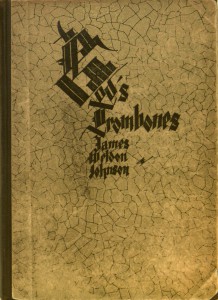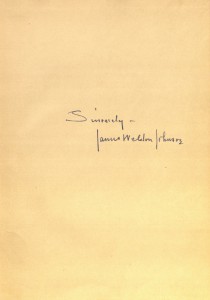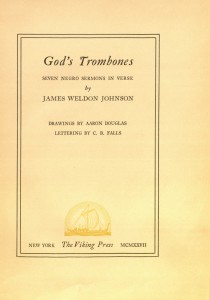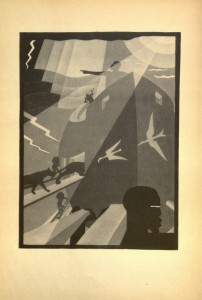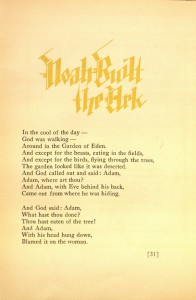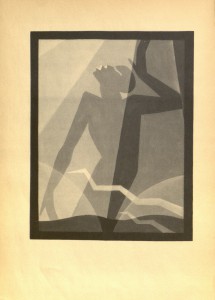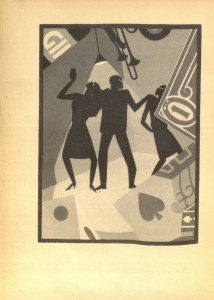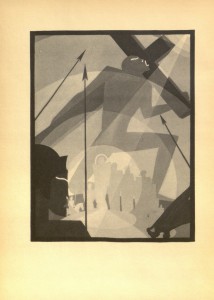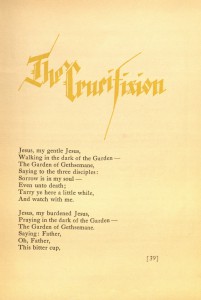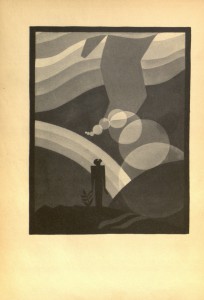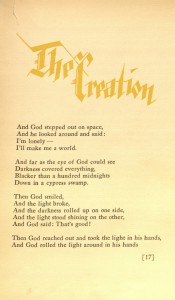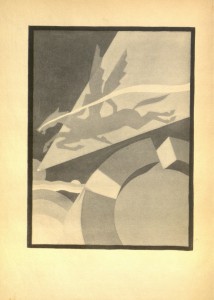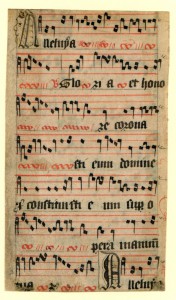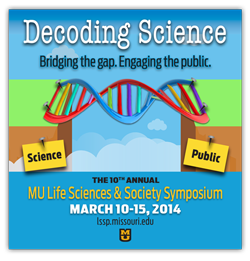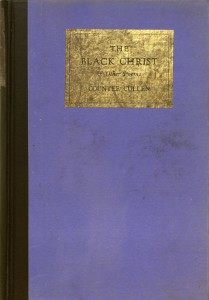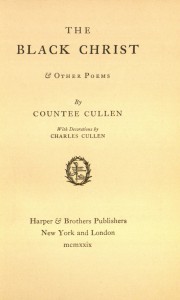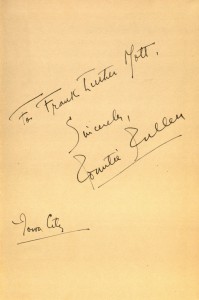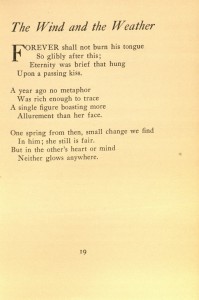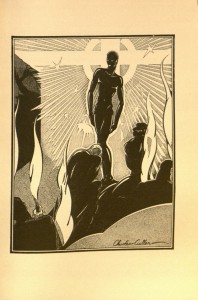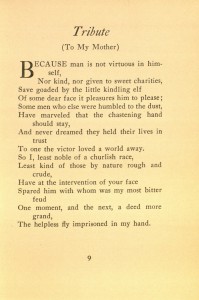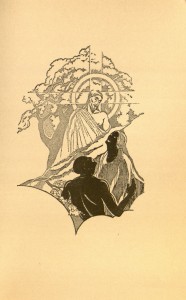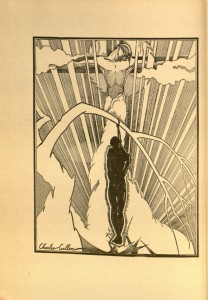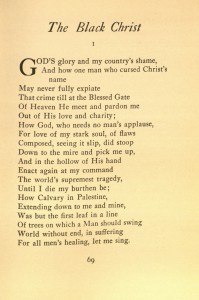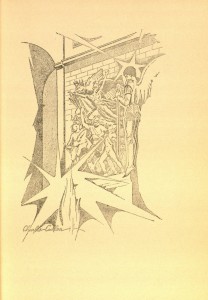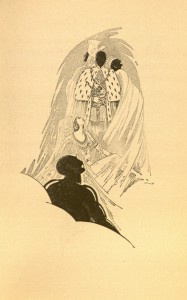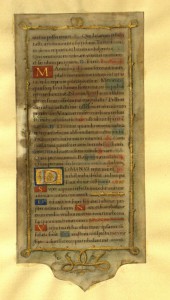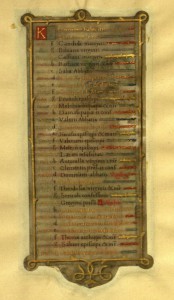This month's final post in our series celebrating African-American artists and writers brings together two greats of the Harlem Renaissance: James Weldon Johnson and Aaron Douglas. Johnson was multi-talented: an educator, writer, attorney and musician, he was the author of "Lift Every Voice and Sing," a leader of the NAACP, and the first African-American professor at New York University. God's Trombones is considered one of his most important works. Douglas was one of the leading artists of the Harlem Renaissance. He developed a distinctive style that blended modernism with African influences and was highly influential in the development of later African-American artists.
Resources and Services
Thousands of Datasets Available for Immediate Download
MU Libraries has long provided data for quantitative research, but now it’s easier than ever. Through our membership in the Inter-university Consortium for Political and Social Research (ICPSR), MU affiliates may conduct online analysis, download data in SPSS, Stata or other ready-to-use formats, and take part in special educational opportunities at steeply discounted rates. Contact Data Archives librarian Marie Concannon for more information, or visit our Data Sets for Quantitative Research website.
A fragment of a fifteenth-century gradual
The Fragmenta Manuscripta collection is again the source of this week's feature. It's a fragment from a fifteenth-century gradual in Latin, possibly from England. Note the square musical notation on a four-line staff. The staff here agree that we particularly like the face in profile added to the large initial. More information at the Digital Scriptorium.
Engineering Library Study Rooms
The semester is well under way and our study rooms are becoming very busy. Please remember to be courteous to your fellow students as you all must share in the use of these rooms. A group is allowed to reserve a room for two hours at a time. After the two hours, and if no one else needs to use the room, your group may reserve another two hours. Read the full engineering study room policy at the bottom of this page.
Design Your Own Scientific Superhero! Win $100 Gift Card!
Mizzou Superhero Challenge:
Design Your Own Scientific Superhero
Contribute to STEM literacy and design a superhero based on real science. You could win tickets for Bill Nye’s talk at Mizzou on March 15 and a $100 gift card to the Mizzou Store! Entries should include the following:
- Your superhero’s name, superpower, and weaknesses
- The scientific basis for your superhero’s powers and weaknesses
- A poster-sized drawing or computer rendering of your superhero (up to 24”x36”)
- Optional: descriptions of your superhero’s sidekick, nemesis, and love interest
Register at http://library.missouri.edu/specialcollections/superhero/ by MARCH 9, 2014.
Finalists will be judged during a poster session at Ellis Library on March 11 from 1 to 3 p.m.
The top three will be announced during Dr. Tim Evans’ program for Superhero Science at Ellis Library on March 12 at 11 am.
Dress as your favorite superhero or supervillain–or your own!
Superhero Science will be on display in Ellis Library March 3-28, 2014.
Affiliated with Decoding Science: Bridging the Gap. Engaging the Public.
http://lssp.missouri.edu/decodingscience
The Black Experience: Readings and Reactions
The Black Christ by Countee Cullen with illustrations by Charles Cullen
This post is the third in our series highlighting the work of African-American artists and authors in Special Collections. Countee Cullen was one of the leading poets and intellectuals of the Harlem Renaissance. This book of poetry, published at the height of his career, examines the relationships between faith and injustice. Cullen draws parallels between the suffering of the crucified Christ and the suffering of African Americans in the climate of racial violence that characterized the 1920s. The copy in Special Collections is inscribed by Cullen to Frank Luther Mott, who was Dean of the School of Journalism from 1942 to 1951.
Help Us Preserve Our Collection
In October 2013, mold was discovered growing on books and bound journal volumes throughout the University of Missouri System's secondary offsite facility, UMLD2. This facility holds approximately 600,000 volumes that belong to the University of Missouri-Columbia campus. To assist with MU Libraries' response to the mold bloom, we have established the Collection Enhancement fund. Your gift will be used to treat, relocate and in some cases, replace items impacted by mold. Our goal is to ensure the MU Libraries' ability to serve the needs of our users is not compromised by this sad event. A gift of any amount is greatly appreciated!
No one cares more about preserving knowledge and scholarship than our librarians and staff. As we work through our response plan, know that we are making every effort to save items with special value and to retain ready access to information in the collection.
If you would like to help us preserve this collection, click here to donate to our Collection Enhancement Fund.
New Web Site!
We've updated our look!
What's new about the site?
- Responsive web design so that the site looks good on tablets and mobile devices
- New New Books format
- Fresh, clean look
- Some (major) behind the scenes improvements to the scripting language (thank you, Mike, Mathew, Caryn, and Ernest!!)
Please let us know if you have any trouble with the new site.
Fragments from a Book of Hours
No librarian is happy to see a broken book, but we're lucky to have eight leaves from this sixteenth-century book of hours. Two of the leaves in Special Collections were originally part of John Bagford's Fragmenta Manuscripta collection – meaning they were removed from the book by the late seventeenth century. Bagford's fragment collection passed to St. Martin-in-the-Fields in the eighteenth century. The collection was sold in 1861 to Sir Thomas Phillipps, then to Sir Sydney Cockerell in 1913. In 1957, the collection was bought by the bookseller William Salloch, and it came to the University of Missouri in 1968.
The remaining parts of the manuscript (it's not clear how much) were eventually broken around 1920. In the 1980s, Margaret Howell, then director of Special Collections, noticed a set of six leaves on the market, and she was able to reunite at least a portion of this beautiful book of hours.
All eight of the leaves are cropped in the same manner and show signs of damage from flooding in London in 1846. The manuscript was produced in the style of Geoffroy Tory, an influential type designer of the Renaissance. This humanistic script may look printed, but it's all written by hand. See more in the Digital Scriptorium: Fragmenta Manuscripta #212, #213, and the six additional pages.
For a great recent overview of the topic of book breaking and its implications for libraries, see This Just In: Breaking Bad by David Whitesell at the Albert and Shirley Small Special Collections Library, University of Virginia.
